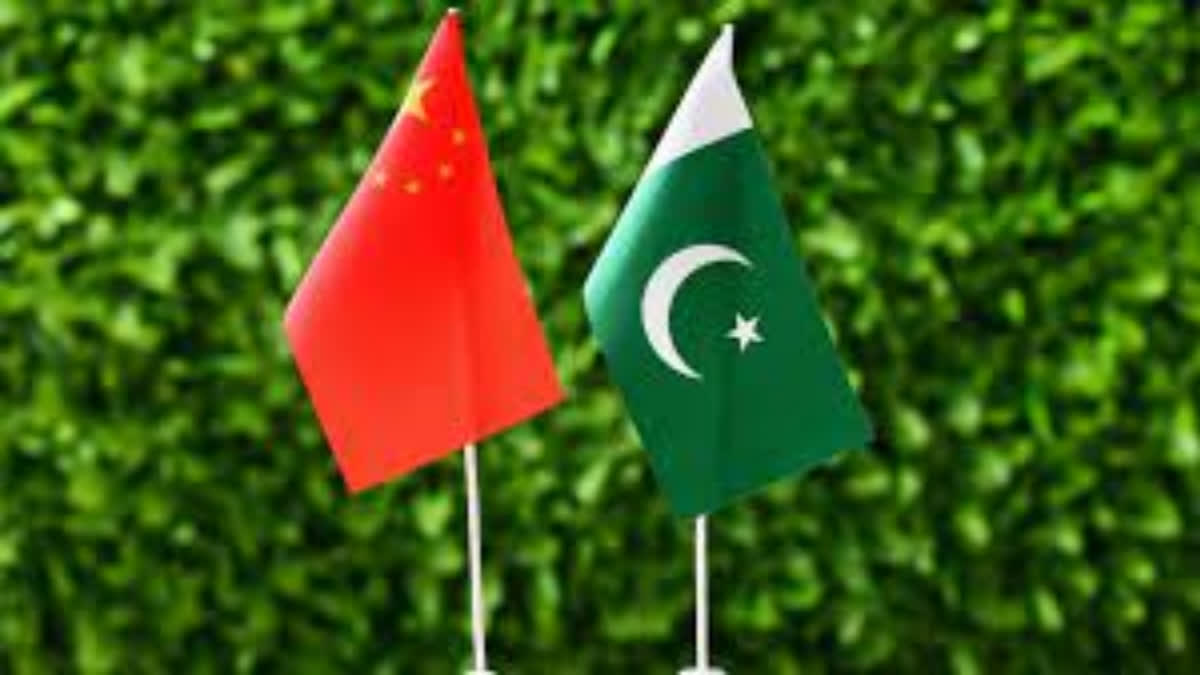Islamabad: Pakistan and China on Monday signed six key documents to help undertake the second phase of the USD 60 billion China-Pakistan Economic Corridor (CPEC) projects under a new model, further cementing the all-weather strategic relations between the "iron brothers."
Prime Minister Shehbaz Sharif and Chinese Vice Premier He Lifeng witnessed the signing ceremony held here to mark 10 years of the CPEC, a collection of infrastructure and other projects under construction throughout Pakistan since 2013. The CPEC, which connects Gwadar Port in Pakistan's Balochistan with China's Xinjiang province, is opposed by India as it is being laid through Pakistan-occupied Kashmir.
In his remarks, Vice Premier He conveyed President Xi Jinping's message of China's firm support to Pakistan's prosperity and development. He, who is a member of the Politburo of the Central Committee of the ruling Communist Party, underlined that Pakistan-China friendship was unique and had withstood the vicissitude of time due to deep fraternal ties between the peoples of the two nations.
He reiterated that as an "iron brother and strategic partner," China would continue its existing economic and financial support to Pakistan. He also conveyed Beijing's willingness to enhance Pakistan's agro and food exports to China. Both countries signed a document on the joint cooperation committee on CPEC; MoU on establishing an export exchange mechanism within the framework of CPEC; a protocol of phytosanitary requirements for the export of dry chillies from Pakistan to China and a Document on the final report on the feasibility study of realignment of KKH Phase -II.
Both sides also signed through diplomatic channels an MoU on the industrial workers exchange programme. Prime Minister Sharif expressed pleasure over the signing of documents and thanked the Chinese Vice-Premier for visiting Pakistan to celebrate 10 years of the CPEC. He recalled that 10 years ago, the CPEC was signed between then Prime Minister Nawaz Sharif and President Xi and implementation was started within no time.
Sharif said that under the CPEC, more than USD 25 billion in investment has taken place in sectors like power, road, hydel power, and public transport. "Now we are entering the second phase," the prime minister said. "Today, we signed certain important documents which will further enhance cooperation and undertake the second phase of CPEC under a new model, he said. He said the second phase of the CPEC would feature business-to-business investment in agriculture and information technology to enable Pakistan to export its products according to Chinese standards and requirements.
Sharif also thanked President Xi for sending his special envoy to Pakistan, showing solidarity for people-to-people friendship and showing to the world that both countries were bound in a great and unique relationship. "We are all-weather friends and iron brothers. This friendship will continue and will not tolerate any kind of obstacle in its way," Prime Minister Sharif said. He assured that Pakistan was ready to contribute towards Chinese President Xi's vision of the shared destiny of progress and prosperity as he showed confidence that Pakistan would stand on its own feet.
We will emulate the Chinese model of development to achieve peace and prosperity in the country, he said, adding that Pakistan and China enjoy a unique relationship. The visit by the vice premier comes as Pakistan narrowly escaped defaulting on foreign obligations. China played a significant role in helping cash-strapped Pakistan by rolling over more than USD 5 billion in loans. The CPEC, which was initially a USD 46 billion project, later on, expanded to USD 62 billion.
The key agreement for the CPEC projects was agreed in 2013 but it was formally launched when President Xi Jinping visited Pakistan in 2015. The BRI was launched by Chinese President Xi in 2013. It aims to link Southeast Asia, Central Asia, the Gulf region, Africa and Europe with a network of land and sea routes.
The BRI is seen as an attempt by China to further its influence abroad with infrastructure projects funded by Chinese investments all over the world. The initiative also led to allegations of smaller countries reeling under mounting Chinese debt after Sri Lanka gave its Hambantota port in a debt swap to China in 2017 on a 99-year lease. (PTI)



